Related Research Articles

Józef Oleksy was a Polish left-wing politician who served as Prime Minister of Poland from 7 March 1995 to 7 February 1996, when he resigned due to espionage allegations. He was chairman of the Democratic Left Alliance.

Kazimierz Stanisław Świtalski was a Polish politician, diplomat, soldier, military officer in the Polish Legions and 18th Prime Minister of Poland between April and December 1929.

The Order of Polonia Restituta is a Polish state order established 4 February 1921. It is conferred on both military and civilians as well as on foreigners for outstanding achievements in the fields of education, science, sport, culture, art, economics, national defense, social work, civil service, or for furthering good relations between countries. It is Poland's second-highest civilian state award in the order of precedence, behind the Order of the White Eagle.

General Michał Tadeusz Tokarzewski-Karaszewicz, Coat of arms of Trąby pseudonym Doktor, Stolarski, Torwid was a Polish general, founder of the resistance movement "Polish Victory Service".
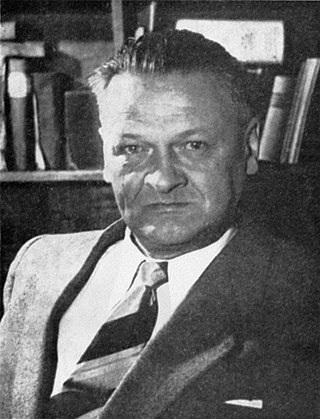
Władysław Kazimierz Broniewski was a Polish poet, writer, translator and soldier. Known for his revolutionary and patriotic writings.

General Wacław Jędrzejewicz was a Polish Army officer, diplomat, politician and historian, and subsequently an American college professor.

Juliusz Karol Wilhelm Józef Rómmel was a Polish military commander, a general of the Polish Armed Forces.

Anna Maria Kurska was a Polish politician and lawyer. She was a member of Law and Justice party and a member of the Polish Senate from 2001 to 2007.

Henryk Jan Józewski was a Polish visual artist, politician, a member of government of the Ukrainian People's Republic, later an administrator during the Second Polish Republic.
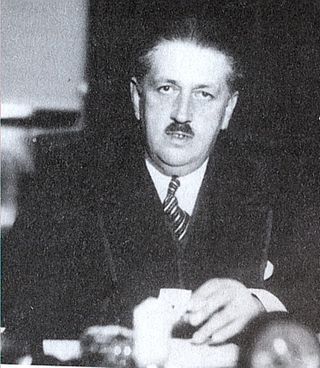
Jan Szembek was a Polish diplomat, one of the most influential ones in the final years of the Second Polish Republic and a close associate of Józef Beck.

Józef Rudolf Kustroń was a brigadier general of the Polish Army in the Second Polish Republic, commandant of the 21st Mountain Infantry Division. He was the first Polish general to die during the German invasion of Poland, and the second general officer casualty of the campaign overall; the first was Wilhelm Fritz von Roettig.

Stanisław Witkowski CBE (Hon.), was an officer, engineer and military industry organiser in the Polish Army, Hononary Commander of the Order of the British Empire.
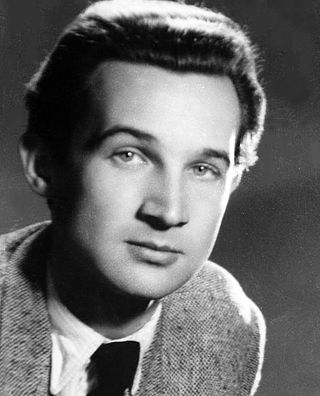
Witold Sadowy was a Polish film and theatre actor as well as publicist and columnist of the Gazeta Wyborcza daily and Życie na gorąco magazine.

Danuta Kuroń is a Polish trade union and democratic activist. She was an underground organizer for the trade union Solidarity in the Polish People's Republic, and she edited and contributed reporting to their periodicals.

Józef Werobej was a Polish infantry officer who served in the Imperial Russian Army and a colonel in the Polish Army appointed by the Polish authorities in exile as a brigadier general. Knight of the Order of Virtuti Militari.

Julian Filipowicz was a major general of the Polish Armed Forces and a commander of the Home Army in the Kraków-Silesia Area. He was also a commander of the Service for Poland's Victory in the Kraków area and inspector of the main headquarters of the Union of Armed Struggle and Home Army.
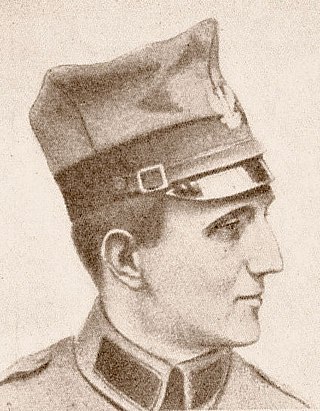
Tadeusz Ludwik Lubicz-Niezabitowski was a Polish colonel who served the Polish Armed Forces and was notable for his participation in the Battle of Grudziądz during the Invasion of Poland.

Stanisław Jan Ferdynand Świtalski was a Polish colonel who was a Certified officer that served in World War I, the Polish–Ukrainian War and in the Invasion of Poland.
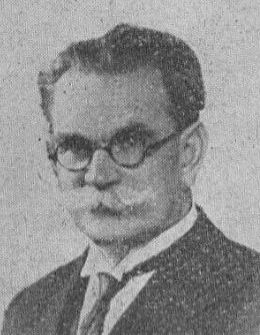
Władysław Tryliński was a Polish transportation engineer and inventor. He is best known for the creation of trylinka, the hexagonal concrete block widely used for pavements and embankments in interwar Poland, and the engineering design of the Maurzyce Bridge, the world's first entirely welded road bridge, a credit he shared with construction engineer Stefan Bryła.
References
- 1 2 3 4 "Pamięć Polski".
- 1 2 3 4 5 6 7 "Polonia Restituta (1981)". Archived from the original on April 1, 2018.
- ↑ Ford, Charles; Hammond, Robert (7 May 2015). Polish Film: A Twentieth Century History. ISBN 9781476608037.